Discover Blue Sky
Blue Sky

Blue Sky
Author: Bill Burke
Subscribed: 7,253Played: 60,080Subscribe
Share
© 2025
Description
Hosted by Bill Burke, founder of The Optimism Institute, this weekly podcast will feature inspiring leaders, authors, researchers, and big thinkers who are taking on some of our world's toughest challenges with an infectious sense of optimism. Blue Sky takes its name from the meditation reminder that there's always blue sky above, sometimes you just have to get your head above the clouds to see it.
147 Episodes
Reverse
Older Americans are struggling with social isolation more than ever. This can lead to challenges with mental and physical health as people age, and one nonprofit is having great success trying to do something about it. Life Story Club uses scheduled Zoom and phone calls form members to share stories about their past, present, and plans for their future. In this Blue Sky conversation, interim director and geriatric specialist Dr. Jennifer Wong describes how this life-changing organization operates. Chapters: 00:00 Welcome and Jennifer's Background The episode introduces Blue Sky and its focus on optimism, then introduces guest Dr. Jennifer Wong. Dr. Wong shares her journey into experimental psychology and her passion for supporting older adults and those with disabilities, which stems from personal experiences with family health challenges. 05:00 Life Story Club's Mission Jennifer explains how she connected with the Life Story Club and describes its simple yet effective model. The club gathers older adults virtually each week to share life stories, aiming to combat social isolation and loneliness in a vulnerable population. 10:25 Story Rx Program and Partnerships Jennifer details the Story Rx program, a unique initiative where medical professionals can prescribe Life Story Club to patients. This program allows for powerful partnerships with leading healthcare institutions like Cleveland Clinic and Montefiore, leveraging medical data to track the program's effectiveness in improving patient well-being. 15:22 Facilitator's Impact and Wisdom The discussion highlights the profound impact facilitators have and the valuable insights they gain from older adults' stories. Facilitators, who are paid professionals, often share their own vulnerabilities, fostering deep connections and mutual support within the clubs, which also incorporate geographical and linguistic considerations. 22:34 Intergenerational Perspective and Progress Jennifer and Bill discuss how older adults' stories provide invaluable historical perspective, reminding younger generations of societal progress and the non-linear nature of change. These narratives offer optimism and a reminder that current challenges, while significant, have historical precedents that were overcome. 27:43 Data and Family Connection Jennifer shares the impressive data collected from Life Story Club participants, showing significant improvements in loneliness, belonging, and mood. The conversation also emphasizes how the club's story recording feature provides a precious gift to families, reconnecting them with their elders' unheard stories and fostering intergenerational connection. 35:20 Growth and Future Outlook Life Story Club is actively working on expanding its reach beyond New York, developing a working group for communities interested in replicating the model. They welcome partnerships with healthcare organizations and individual donors to meet the growing need for older adult support and enhance life for longer-living populations.
Lynda Ulrich and her daughter Liesl Ulrich-Verderber are the mother-daughter team behind the Goodness Exchange, a global positive-news platform founded in 2014 to help people cut through today's negative nose with research-backed, solutions-focused storytelling. On this Blue Sky episode, they describe how they came to their optimistic outlooks at different stages of their lives and have managed to work together to create a remarkable platform for hopeful and uplifting stories. Chapters: 00:00 Are Optimists Born or Made? Bill Burke introduces the mother-daughter team, Dr. Lynda Ulrich and Liesl Ulrich-Verderber, co-founders of The Goodness Exchange. Lynda shares how a childhood tragedy, coupled with her parents' optimistic worldview, led her to choose to see the good in the world from a young age. 04:22 From Jaded to Optimist Liesl describes her journey from a 'jaded Harvard student' to an optimist, influenced by working with her mother on The Goodness Exchange's positive content. Lynda discusses how she encouraged her children to 'change their state' and choose their perspective when facing adversity, modeling this through their family's extensive global travels. 08:05 The Power of Travel Lynda and Liesl reflect on how their extensive world travels, even to uncomfortable places, broadened their perspectives and fueled their optimism. Liesl emphasizes seeing both the vast differences and similarities in how people live globally, fostering connections across cultures and expanding comfort zones. 12:30 The Digital Divide and Disinformation Lynda explains her transition from dentistry to founding The Goodness Exchange, motivated by patients' increasing fear and negativity towards the future post-2010, linking it to negative news and social media. Liesl attributes this shift to the early, unregulated development of social media by young creators and a general lack of digital literacy, but notes a growing trend among younger generations to disengage from platforms that negatively impact them. 17:42 Battling Digital Overload Bill and Lynda discuss the unhealthy constant consumption of negative information through smartphones and social media, highlighting how clicks on alarming content inadvertently 'vote' for more of it. 22:30 Unplugging and Community Liesl, specializing in EdTech, advocates for removing phones from classrooms to foster community and better learning, viewing technology as a tool for connection rather than a constant distraction. 30:01 The Goodness Exchange's Evolution Lynda recounts starting The Goodness Exchange (originally Ever Widening Circles) as a blog to counter the world's negativity she observed in her dental practice, writing daily articles about positive stories. Liesl, upon graduating from Harvard, decided to join, seeing it as a way to transition her mother's passion into a sustainable and impactful publishing and media company focused on rigorously sourced positive content. 33:05 Rats to the Rescue! The Goodness Exchange primarily publishes positive news articles, a bi-weekly newsletter, and the 'Conspiracy of Goodness' podcast, focusing on engaging content formats as people skim rather than read. 41:02 AI in Education: Educated Bravery Liesl expresses excitement about AI in education, particularly tools like Khanmigo and Magic School AI, which move beyond cheating fears to empower teachers and students. 48:13 Bridging Generational Gaps Lynda shares an analogy about intergenerational collaboration, where her long life provides a broad 'back of the Earth' perspective, while Liesl, standing on the 'edge,' sees what's coming in the future.
Before Stan Andrisse was sentenced to ten years in prison for a Class A drug felony, the prosecutor had asked for a life sentence, suggesting that the defendant was irredeemable. In the years since, Stan, now "Dr. Andrisse" has proved this attorney and many others wrong. While in prison, he discovered an interest in science and endocrinology and today is a tenured professor at the Howard University College of Medicine. To create similar opportunities and career paths for others who are or have been incarcerated, he founded the nonprofit From Prison Cells to PhD. Chapters: 00:00 Introduction to Dr. Stan Andrisse This chapter introduces Dr. Stan Andrisse a tenured faculty member at Howard University and the founder of "From Prison Cells to PhD." 02:40 Early Life and Incarceration Dr. Andrisse discusses his childhood in Ferguson, Missouri, and how he became involved in illegal activities from a young age. He describes his progression from minor trouble to serious drug dealing, leading to multiple felony convictions and facing a potential life sentence under the three-strikes law. 07:58 The Incarceration of the Mind Stan reflects on the profound psychological impact of being labeled a career criminal and facing a lengthy prison sentence. He emphasizes that the 'incarceration of the mind' is more damaging than physical imprisonment and describes how a mentor helped him begin to overcome this despair. 12:58 Mentor and Path to Education Stan details the pivotal role of Dr. Barry Bodie, who supported him during his sentencing and continued to mentor him in prison. He explains how reading scientific articles, prompted by his father's death from diabetes, liberated his mind and ignited his passion for science, leading to his acceptance into St. Louis University despite multiple rejections. 22:33 Talent, Opportunity, and Innovation Stan discusses his philosophy that talent is evenly distributed, but opportunity is not, using his own journey as an example. He highlights the untapped brilliance within incarcerated individuals, arguing that with resources and opportunities, their innovative problem-solving skills could benefit society greatly. 28:40 From Prison Cells to PhD: The Organization Stan explains how his personal transformation inspired the creation of "From Prison Cells to PhD," a nonprofit scaling the mentorship and resource provision he received. He shares the organization's three core tenets: peer mentorship, community building, and connecting people to resources, detailing its significant success in helping formerly incarcerated individuals pursue higher education and careers. 34:07 Impact and Pen Pal Program Stan discusses the remarkable matriculation and GPA rates of participants in his "From Prison Cells to PhD" program. He explains how the organization reaches incarcerated individuals through partnerships with correctional facilities and its impactful pen pal program, which provides a vital connection to the outside world and instills hope, preventing recidivism. 41:35 The Drive to Succeed and Give Back Stan highlights the unique motivation and grit of formerly incarcerated individuals, driven by a desire to prove their worth and contribute positively to society. He notes that their experiences with hardship often translate into loyalty, hard work, and a commitment to making communities better and safer. 45:29 Breaking Chains, Building Futures, and Final Thoughts Stan discusses his new book, "Breaking Chains, Building Futures," which features diverse stories of individuals helped by his organization. He encourages listeners to support "From Prison Cells to PhD" through their website and social media, emphasizing the continued inspiration he draws from his father's motto: "It's Never Too Late to Do Good."
Kevin Lowe has come a long way since he was seventeen years old and lost his eyesight during a medical procedure gone wrong. In this Blue Sky conversation, Kevin describes how he's rallied from this devastating event to live a life full of resilience, purpose, and optimism. This episode concludes with a surprise musical feature, courtesy of Kevin himself. 00:00 Kevin Lowe's Childhood & Early Life Kevin Lowe shares insights into his childhood in East Central Florida, highlighting a carefree upbringing centered around outdoor activities with his cousin Josh. He also opens up about his parents' divorce in second grade and the significant role his grandmother played in his life. 04:46 Loss of Sight and Other Complications Kevin recounts the discovery of a plum-sized brain tumor at 17, which, though non-cancerous, posed a life-threatening risk. He describes the traumatic surgery that led to complete blindness, loss of smell, short-term memory loss, and a permanently damaged pituitary gland. 11:02 Journey Through Grief and Despair Kevin candidly discusses the profound sadness and despair he experienced after losing his sight, describing it as being 'trapped in hell.' He reveals his nightly prayers for his sight to return and even for the courage to end his life, ultimately finding strength in his faith and family. 15:04 Perseverance and New Beginnings Kevin shares his journey of rebuilding his life, including his determination to graduate with his high school class despite his blindness. He discusses his internships in travel and radio, which eventually led him to start his own travel agency, Better Days Travel, and his pivotal realization from an audiobook to embrace life despite his challenges. 23:12 The Podcast: Grit, Grace, and Inspiration Kevin talks about how the 2020 pandemic and his sister's suggestion led him to start podcasting, a medium he quickly realized he was 'designed for.' He details his podcast, Grit, Grace, & Inspiration, which focuses on sharing stories of overcoming adversity and inspiring others, encapsulated by his tagline 'turning setbacks into stages.' 31:54 Technological Advancements and Echolocation Kevin highlights how technology, particularly the iPhone with its voiceover feature and apps like Apple's 'Be My Eyes,' has significantly improved his life. He also fascinatingly explains how he learned echolocation, a skill that allows him to perceive his surroundings through sound, giving his world shape again. 42:20 Advice and Gratitude Kevin expresses gratitude for his seventeen years of sight, which aids his interpretation of the world, despite being a 'picky blind person' about colors. He offers heartfelt advice to those facing setbacks: 'give yourself grace' and remember that 'it's going to get easier, it's going to get better.' 45:20 Blue Sky Above - A Musical Surprise The host discusses the inspiring technological advancements and echolocation techniques Kevin shared. As a special surprise, Kevin produced an original song, 'Blue Sky Above,' which is played to close the episode.
Chris Anderson was inspired by the growth of TED once they expanded from being simply a conference company to adding the concept of offering their talks free to the world over the internet. He's now calling on us all to "reclaim the internet" and use it as a force for spreading less hate and division and more kindness and generosity. His new book, Infectious Generosity, lays out clearly the reasons why generosity is good for the world — as well as for us as individuals — then details a plan by which this movement can spread virally. Chris's views on these subjects are aligned perfectly with the work of The Optimism institute and he shares them with great enthusiasm in this uplifting and inspiring episode of Blue Sky. Chapters: 00:00 Welcome Chris Anderson to Blue Sky Bill Burke welcomes Chris Anderson, head of TED, to the Blue Sky Podcast. Chris discusses his new book, "Infectious Generosity," and his mission to use the internet as a force for good, combating online division. 02:14 TED's Impact and TEDx's Success Chris shares how TED made its videos freely available online, which surprisingly enhanced the conference rather than hurting it. He explains the success of TEDx, a free licensing model that enabled 65,000 volunteers to create events globally, generating billions of views. 06:00 The Internet's Downfall and Human Nature Chris discusses how the internet, especially social media, went astray, preying on our 'lizard brains' and promoting outrage. 11:47 Generosity and Happiness Chris explains the deep connection between generosity and happiness, citing a Chinese proverb that highlights helping others as a path to lifelong joy. He emphasizes that while the internet can be negative, it also offers a powerful tool for spreading positive change. 15:57 Reclaiming the Internet: Tactics Chris discusses tactics for reclaiming the internet, focusing on making 'good stuff' go viral by evoking authentic human emotion. He uses the example of 'The Kindness Pandemic' Facebook group and highlights the need for creativity and courage to break through online negativity. 21:09 Our Role in Shaping Social Media Chris emphasizes that users are not helpless in shaping their social media experience, stressing the importance of conscious choices in who to follow and what content to engage with. 27:47 The Uniqueness of Our Time and Generosity Strategy Chris highlights the unique historical moment that allows for widespread generosity due to frictionless digital sharing and its reputation-building power. 33:06 Embracing Imperfect Generosity and Gratitude Chris encourages letting go of the idea of 'perfect generosity,' urging celebration of all motivations behind giving, even those with mixed intentions. 39:25 Podcast Recommendation and Host Reflections Bill Burke recommends 'Two Lives,' a character-driven narrative podcast about overcoming darkness, which has received several awards. 42:21 Neuroplasticity, Optimism, and AI for Good Chris discusses neuroplasticity and how our narratives shape us, emphasizing that kindness, like a muscle, grows with exercise. He introduces the Infectious Generosity Guru (TIG), an AI tool designed to help individuals brainstorm ways to spread generosity online. 49:15 A Vision for a Better Future Chris outlines his continued work with TED, focusing on the Audacious Project to collaboratively fund large-scale change initiatives. He emphasizes that optimism is a stance—a determined effort to find and illuminate pathways to a better future, urging collective action to reclaim the internet and inspire change.
Matt Ridley's seminal book, The Rational Optimist, has inspired many since its publication in 2010 and greatly influenced the creation of The Optimism Institute. In this far-ranging discussion, Matt will describe an early education that he said was steeped in pessimism but how later in life he found that much of what he'd been taught was simply not true. This led him to set on a nearly evangelical quest to spread the word that interaction and trade between people and nations, including the free exchange of ideas, will continue to set us on an inexorable path towards increasing prosperity. Chapters: 00:00 Introducing Matt Ridley Bill Burke introduces Matt Ridley, acclaimed author of "The Rational Optimist" and other influential books. He highlights Ridley's extensive background, including his service in the House of Lords and his work on various scientific committees. 02:39 From Pessimism to Rational Optimism Matt Ridley shares his personal journey from a pessimistic upbringing in the 1970s to becoming a 'rational optimist' based on evidence. He recounts how his research for 'The Rational Optimist' revealed that many assumed negative trends, like decreasing happiness with wealth, were actually false. 06:01 The Genesis of "The Rational Optimist" Ridley explains his evangelical motivation for writing 'The Rational Optimist,' aiming to counter pervasive doom and gloom, especially among young people. He also sought to explore the evolutionary roots of human prosperity and growth, driven by an innate curiosity about why the world was improving. 07:28 Ideas Have Sex: Cooperation and Trade Matt Ridley delves into his concept of "ideas having sex," explaining how human cooperation, trade, and the exchange of specialized skills drive prosperity. He posits that this fundamental human tendency to swap goods and ideas is as crucial to cultural evolution as sex is to natural evolution. 13:50 Social Media's Impact: Polarization and Progress Ridley reflects on social media's impact on his 'ideas having sex' theory, acknowledging its initial promise for communication but also its role in political polarization. 19:29 Panglossian vs. Rational Optimism Ridley distinguishes his rational optimism from Panglossian optimism, emphasizing that he believes the world can and should be improved, not that it's already perfect. He counters common pessimistic arguments by pointing to long-term improvements in living standards and the gradual nature of good news compared to sudden bad news. 23:56 Trust and the Pencil's Lesson Matt Ridley discusses the importance of interpersonal trust for societal prosperity, contrasting it with institutional trust. He also elaborates on the 'I, Pencil' essay, illustrating how millions of specialized individuals unknowingly collaborate to produce even a simple item like a pencil. 33:15 Gratitude, Specialization, and Daily Miracles Ridley encourages gratitude for the vast network of people who contribute to our daily lives, using the example of a simple meal. 36:50 Climate Change: A Problem to Be Solved Matt Ridley shares his nuanced perspective on climate change, acknowledging it as a real threat but cautioning against panic and exaggeration. He suggests viewing it as a problem solvable through human ingenuity, while also highlighting the overlooked environmental benefits of CO2 and the harm caused by some climate prevention measures. 42:51 The Future of Innovation: Worries and Hopes Ridley discusses the limitless nature of knowledge and innovation, emphasizing communication over population size for progress.
Amy King watched the devastating aftermath of Hurricane Katrina and seeing people sheltered in a leaking football stadium inspired her to work with her husband on shelter solutions. The result was Pallet, a company that makes safe, secure, and easily assembled temporary shelters. In this episode she shares her inspiring story and details about her remarkable company. Chapters: 00:00 Introduction to Amy King and Pallet This chapter introduces Amy King, founder and CEO of Pallet, a public benefit corporation addressing homelessness. 02:07 From Child Psychology to Social Enterprise Amy King shares her journey from studying child psychology, where she observed the impact of troubled homes, to founding Pallet. Her interest in people and the influence of early experiences shaped her path toward addressing societal challenges like homelessness. 04:37 The Genesis of Pallet: From Katrina to Construction Amy discusses how her husband's construction company accidentally led them to employ individuals from the justice system, many of whom had experienced homelessness. 07:19 Public Benefit Corporation Model Amy explains why Pallet operates as a public benefit corporation rather than a nonprofit, emphasizing its dual mission of workforce development and providing shelter. 11:13 Pallet Shelters and Deployment Strategy Amy describes the innovative design of Pallet shelters—lightweight, panelized, and quick to assemble, with features like heat, AC, and easy cleaning. She details Pallet's partnership with cities and Zillow to identify and utilize vacant public land for shelter villages, which are temporary and designed for easy relocation. 15:35 The Transformative Impact of Pallet Shelters Amy elaborates on how Pallet shelters provide more than just a roof, offering a managed care environment with wraparound services for mental health, substance use, and housing placement. This stability allows individuals to engage with services and break the cycle of homelessness, as exemplified by a tenant named Matthew. 20:29 Hope for Ending Homelessness & Political Challenges Amy discusses Pallet's broad reach across the US and Canada and her controversial but hopeful view on ending homelessness. She addresses the political complexities and the need for sufficient services and innovation to address root causes, moving towards 'functional zero' homelessness. 25:57 Disaster Relief and Versatile Solutions Amy highlights Pallet's role in disaster relief, noting the political challenges of working with organizations like FEMA and the need for non-congregate shelter solutions. She explains the versatility of Pallet's product, which can be repurposed for both disaster response and homelessness, providing flexibility for communities. 31:10 Economic Viability and Community Recovery Amy discusses the economic benefits of using Pallet shelters for disaster relief, contrasting them with expensive hotel stays and emphasizing the importance of keeping residents near their communities for recovery. This approach helps maintain local economic bases and encourages volunteer participation by providing convenient housing for relief workers. 34:19 Transformative Impact on Individuals and Families Amy shares her favorite part of the work: witnessing the profound transformation of individuals who gain employment and stability through Pallet. She emphasizes how this not only changes the lives of the employees, many of whom were formerly incarcerated or homeless, but also reunites and positively impacts their families, especially their children. 38:46 Getting Involved with Pallet Amy encourages listeners to get involved with Pallet by reaching out through their website or email to support their mission. She emphasizes the value of local constituent engagement in driving political conversations and understanding community stakeholders to expand their impact.
Mimi Nicklin left a successful career as a marketing executive to take on the task of educating the world on the value and power of empathy. In this episode, Mimi describes the alarming "empathy deficit," its root causes, and practical strategies like self-empathy and "ALUR" (Authenticity, Listening, Understanding, Recognition) that she espouses to reconnect our workplaces and world. Chapters: 00:00 Mimi Nicklin's Global Journey Mimi Nicklin, a British native, has spent nearly two decades living and working across Asia Pacific and the Middle East, finding her passion and purpose in this part of the world. Her extensive international travel and diverse cultural experiences have significantly shaped her perspective on human connection and understanding, laying the groundwork for her specialization in empathy. 04:19 The Empathy Lightbulb Moment Mimi's journey into empathy began when a business coach questioned if her leadership style was intuition or empathy, sparking a personal revelation. This led her to discover the 'empathy deficit,' a significant societal issue that no one seemed to be addressing in 2019, prompting her to dedicate her work to this crucial topic. 08:56 Causes of Empathy Deficit Empathy has declined by 48% in the last 30 years, a critical issue for human survival, not just thriving. Mimi identifies urbanization, digitization, and overwhelming stress and anxiety as the primary root causes of this global empathy deficit, which impacts our ability to access empathetic parts of the brain. 12:32 Connectivity Paradox and Fear Despite increased physical proximity in cities and the promise of social media, people feel more disconnected and lonely than ever, a paradox Mimi attributes to a fundamental lack of understanding. This disconnection is largely driven by subconscious fear, exacerbated by the constant influx of overwhelming information from 24/7 news, leading people to retreat into their 'tribes' for safety. 17:13 The Power of Self-Empathy Mimi introduces 'self-empathy' as a crucial, yet untrending, skill for understanding oneself and managing overwhelming external information. She shares a personal example of choosing not to watch the news to protect her mental well-being, emphasizing that this ability to understand personal limits is vital in a world largely beyond individual control. 22:10 Balancing Humanism and Capitalism Mimi argues that balancing humanism and capitalism is not difficult but underutilized, emphasizing that growth and profit can and should go hand-in-hand with human well-being. She highlights that organizations with engaged and empathetic cultures achieve higher profits, engagement, and innovation, underscoring that humanism is a driver of business success, not an impediment. 25:37 The Art of Listening-Led Leadership Mimi stresses the critical importance of active, intentional listening in leadership, noting that many leaders are unaware of their own listening deficiencies. True listening, she explains, involves decoding information to understand, rather than merely hearing or preparing a reply, and is fundamental for empathy, innovation, and collaboration within teams. 32:06 Patience, Presence, and Pace Mimi highlights patience and presence as essential pillars for authentic listening and achieving long-term goals, contrasting them with the modern rush for instant gratification. 34:48 ALUR: Authenticity, Listening, Understanding, Recognition Mimi introduces her ALUR framework for leadership: Authenticity, Listening, Understanding, and Recognition, emphasizing that authenticity, rooted in patience and presence, is paramount for genuine connection. \ 41:39 The Empathy Empire's Impact Mimi emphasizes the significant financial and human costs of not listening and disengagement, noting that many employees resign due to poor relationships with their bosses. She describes her 'Empathy Empire' through keynote speaking, writing books like 'The Connection Prescription,' masterclasses, and media work, all aimed at fostering global empathy and balancing humanism with technology.
Paul Leonardi is an expert in technology management and has developed a deep understanding for why today's digital tools—even those that are helpful—can contribute to our growing sense of exhaustion. Pulling from research he's written about in his book Digital Exhaustion, he explains why this happens and as importantly, what we can do about it. Chapters: 02:00 Why Digital Exhaustion? Paul Leonardi discusses his 20-year career helping companies implement new technologies and his observation of the increasing dread people feel towards new tools. He highlights how the solutions to digital overload are not working, leading to widespread exhaustion. 04:36 The Types of Digital Switching Paul explains three kinds of digital switching: between modalities (apps), domains of work, and arenas (work/home). He emphasizes that these switches, though seemingly innocuous, cause significant cognitive strain and mental exhaustion due to the brain's reorientation time. 07:20 Cumulative Exhaustion and Control Paul explains that digital exhaustion is a cumulative problem, building slowly over time from seemingly small attention switches. 11:29 Expectations and Response Patterns Paul discusses how people tend to overestimate the urgency of messages and fall into a 'hero symptom' of quick responses, leading to a vicious cycle. He explains how this creates an exhausting game of chase, where individuals try to outdo each other in fast replies. 14:35 Strategies for Managing Expectations Paul suggests asking for clarity on urgency and adopting a philosophy of 'waiting' (one hour, one day, one week) to reset response patterns. He also highlights the effectiveness of out-of-office messages and direct communication in setting realistic expectations and reducing perceived urgency. 20:59 Measuring Digital Exhaustion Paul describes his 'Digital Exhaustion' rating, inspired by the Maslach Burnout Inventory, which measures how much digital tools wear people out. He reveals a precipitous rise in digital exhaustion rates from 2002 to 2022, with major spikes in 2010 (smartphones/social media) and 2021 (pandemic). 26:10 Unforced Errors and Self-Views Paul discusses 'unforced errors' like sleeping with phones in bed and constantly viewing oneself during video calls, which contribute to exhaustion. He explains how the 'self-view' on video platforms is a metaphor for the constant self-curation and inference-making we do across all online platforms, leading to mental fatigue. 31:08 The Exhaustion of Upward Comparison Paul references a 1950s Stanford study on upward comparison and how social media amplifies this, leading to exhaustion from comparing oneself to others' curated ideal lives. He discusses how AI will further exacerbate this issue by creating unrealistic avatars for comparison. 36:07 Antidotes and Small Wins Paul suggests taking online content at face value without extrapolating deeper meanings to combat upward comparison and the stories we create. 42:45 Resonance and Pushback Paul shares that the most pleasing feedback on his book is the distinction between a sustainable approach to digital exhaustion versus unsustainable digital detoxes. The main pushback he receives is about the 'waiting' strategy, with people fearing it will make them seem impolite or ghosting.
Guy Kawasaki has had an amazing life and career. After growing up in Hawaii, he went to California for college and later went on to what was then known as Apple Computer where he was a self-described "brand evangelist" during some of their highest growth and most entrepreneurial years. He describes Steve Jobs as being optimistic almost to the point of being delusional, and working for him has inspired Guy to be interested in mold-breaking people ever since, hence the name of his popular podcast, Remarkable People. He has also written 17 books on a variety of subjects, his latest being Wiser Guy, which was released earlier this year. Chapters: 00:00 Welcome to Blue Sky Bill Burke introduces Guy Kawasaki as a remarkable guest on Blue Sky, highlighting Guy's background as chief evangelist at Apple and Canva, and his extensive writing. Guy shares his preference for being a podcast guest due to less prep work, contrasting with the host's five-hour preparation time. 03:10 From Hawaii to Stanford Guy recounts his childhood in Kalihi Valley, a lower-middle-income part of Hawaii, and how a public school teacher's advice led him to a private school, then Stanford. He describes feeling immediately at home at Stanford in 1972, despite it being pre-tech, and the campus's amazing atmosphere. 06:17 Apple, Steve Jobs & the 1984 Ad Guy discusses his two stints at Apple, particularly his time in the Macintosh division under Steve Jobs from 1983 to 1987. He reveals the Macintosh team's mission to preserve democracy and freedom through computing and shares the behind-the-scenes story of the iconic 1984 Super Bowl ad, which the board initially wanted to pull. 11:49 Evangelizing Apple & Sales Skills Guy details how Apple evangelized its new operating system in the 1980s through fervor rather than just money, contrasting with the corporate image of IBM. He also shares his 'checkered past' of dropping out of medical, dental, and law school, leading him to an MBA and invaluable sales experience in the jewelry business, which he considers essential. 17:02 Steve Jobs: Visionary & Demanding Guy describes working for Steve Jobs as the most formative experience of his career, calling Jobs a visionary and passionate, albeit demanding and intimidating, leader. He emphasizes that Jobs was a 'mission-driven egoist' who cared only about making the best computer, disregarding personal biases like race or gender. 23:01 Remarkable People Podcast Origins Guy explains his decision to start the 'Remarkable People' podcast, initially inspired by the lucrative ad model of another podcaster, and his realization that his access to remarkable individuals and business experience uniquely positioned him. He highlights the strategic advantage of having prominent guests like Jane Goodall to attract others. 30:08 Jane Goodall: A Source of Hope Guy recounts his personal connection to Jane Goodall, stemming from a TEDx interview, and how she became his first podcast guest. He describes her as the most remarkable person he's interviewed, embodying hope and tireless dedication to her cause, even declining a rest offer at 90 due to 'too much to do.' 36:30 Optimism as a Strategic Advantage Guy discusses optimism as a strategic advantage, asserting that it's crucial for achieving anything significant, combining realism with the belief that challenges can be overcome. He shares his experiences of taking up ice hockey at 44 and surfing at 60, attributing it to a 'growth mindset' and the belief that one is never too old to learn new things.
We all know that huge sums of money are invested in creating new, more effective weapons of war. Brian Abrams sees an opportunity to invest instead in what he calls "peace tech," emerging businesses using technologies and creative methods designed to prevent war from happening in the first place. He's created a new firm, B Ventures, and in this Blue Sky episode he describes with infectious optimism his exciting vision for the future. Chapters: 00:00 Introduction to Brian Abrams Bill Burke introduces Brian Abrams, founder of B Ventures Group, an investment fund focused on global peacebuilding and conflict resolution through "peace tech." Brian's extensive background in managing over $1 billion in assets and his human-centric investment philosophy are highlighted. 02:09 From Founder to Venture Capitalist Brian shares his career journey, starting as an entrepreneur in India where he experienced failure, which led him to realize his strength in spotting opportunities rather than operationalizing them. He then transitioned to venture capital in Israel, building a fund from $2 million to over $1.2 billion, emphasizing the role of luck and a pivotal moment in fostering peace initiatives. 08:28 The Genesis of Peace Tech Brian reflects on his past experiences, including a startup's condition to include Palestinian teammates during an acquisition, which planted the seed for his current work. He explains his philosophy of using money to serve people and approaching problems from a bottom-up perspective, leading him to focus on peace tech as an alternative to military tech. 10:17 The Rationale for Peace Tech Drawing inspiration from Thich Nhat Hanh's philosophy of 'interbeing,' Brian articulates why war is illogical and a form of collective self-harm. He emphasizes the enormous economic cost of violent conflict, totaling $19 trillion annually, and how venture capital's bottom-up, experimental approach can offer innovative solutions for peacebuilding. 15:28 AI in Crisis Simulation Brian describes an investment in a startup founded by a Harvard researcher who developed an AI-powered crisis simulation platform. This technology aims to anticipate and prevent future conflicts, like potential World War III over Taiwan, by running thousands of scenarios daily, far exceeding traditional war games. 21:32 Business Model for Peace Tech Brian explains the twofold business model for peace tech startups: selling to friendly governments and to companies for competitive landscape analysis. He emphasizes that a for-profit model ensures scalability and continuous funding, unlike grants, allowing for exponential growth and a virtuous cycle to prevent major conflicts. 29:23 Peace Tech: Agile and Ethical Brian highlights the agility of venture-backed peace tech companies compared to traditional government or academic initiatives, citing an example of a startup rapidly forming after the dismantling of the US Institute of Peace. He defines peace tech as anything that preempts, mitigates, or resolves violent conflict, adhering to a 'first do no harm' principle. 34:26 Peace Tech Investments and Ecosystem Brian discusses additional investments, including a company creating digital twins of societies to understand and model civil conflicts like those between Armenia and Azerbaijan. He describes the growing Peace Tech ecosystem, drawing parallels to the private space industry's exponential growth, and aims to build a global community of founders and investors. 41:12 Conclusion and Call to Action Bill Burke reflects on how technology's ability to show the grim reality of war might increase the fervent desire for peace. Brian encourages listeners to connect via LinkedIn and join the Peace Tech community, expressing his strong optimism for the future impact of this movement.
Blue Sky host Bill Burke first met Scott Nash nearly 30 years ago, when both were working in the cable television business. In the years since, Scott has gone on to a successful career in publishing, both as an illustrator and an author, and with his wife Nancy co-founded Illustration Institute on a small island in Maine. In this episode, Scott describes his outgoing, experimental, and optimistic nature and how these traits have led to his remarkable success in publishing, art direction, and non-profit entrepreneurship. Chapters: 00:00 Introduction & Early Childhood Scott shares that he moved nine times before second grade, which taught him to make new friends and thrive on connection, fueling his optimism and artistic development. 03:47 Education and Early Career Scott Nash discusses his education at the Swain School of Design and Cranbrook, an experimental school that shaped his playful approach to design. 09:05 Early Days of Cable TV Scott highlights how their 'handmade' approach to branding for networks like Nickelodeon, which included assigning the color orange and constantly changing logos, stood out in an industry that traditional executives weren't taking seriously. 14:20 The Flat Stanley Phenomenon Scott Nash discusses his work illustrating Flat Stanley, a book that became a widespread educational phenomenon due to teachers encouraging kids to create and mail their own Flat Stanley figures. 19:16 Illustrating vs. Writing Own Books Scott Nash reflects on the differences and joys of illustrating books for other authors, like Flat Stanley, versus writing and illustrating his own works, such as The High Skies Adventures of Blue Jay the Pirate. 23:05 Defining Illustration & Illustration Institute's Founding Scott Nash defines illustration as 'visual art that enhances a specific narrative,' encompassing comics, graphic novels, and even narrative pottery. He explains how his passion for academia and 'rogue schools' led him to establish the illustration department at Maine College of Art and, later, co-found the Illustration Institute. 31:19 Highlighting Illustrators & Their Impact Scott Nash shares his love for classic children's book illustrators like Garth Williams, known for Stuart Little and Homer Price, and Robert McCloskey, famous for Make Way for Ducklings. He recounts the emotional and intellectual impact of Illustration Institute's exhibitions, which showcase original works and highlight the often-uncredited illustrators behind beloved stories. 34:27 AI's Impact on Creativity and Authenticity Scott Nash discusses the cyclical nature of creative trends, noting a shift from highly creative, handmade works in the early days of cable to a more corporate, homogenized phase. He expresses critical optimism about AI, hoping it will spur a countertrend towards more authentic, handmade creations. 39:59 Ethical Concerns and Public Voice in AI Scott Nash expresses concern about the business-driven rush to implement AI without a clear ethical framework, fearing it could lead to low-quality content and potential harm if not properly regulated. 42:45 Future of Illustration Institute & Closing Scott Nash details the Illustration Institute's future plans, including developing traveling exhibitions for libraries across the country, such as 'The Great State of Illustration in Maine' and the ambitious 'Illustrious Saurus,' which explores dinosaur depictions from paleontology to fantasy. He emphasizes the institute's mission to highlight illustration's critical rigor and broad appeal, connecting Maine's artistic reach with global themes and sharing his childlike enthusiasm for storytelling.
Phil Green has had a successful career in music and sports. For what he describes as his "third act," Phil is now overseeing Follow the Music, a nonprofit in his hometown of Oakland, California. Follow the Music provides artist development, booking and management services to young artists — to shine a light on their talents and bring visibility to the programs that helped develop them. Chapters: 00:00 Introducing Phil Green and Follow the Music Bill Burke introduces Phil Green, co-founder of Follow the Music, an organization dedicated to fostering young musical talent in Oakland. Phil's extensive background in sports and music, including managing Grammy winner Fantastic Negrito, led him to create this non-profit. 02:05 From Ronnie Lott's Idea to Follow the Music Phil Green shares how a conversation with NFL Hall of Famer Ronnie Lott about a new venue sparked the idea for Follow the Music. 04:32 Fantastic Negrito's Journey and Industry Lessons Phil recounts the incredible comeback story of Fantastic Negrito, who achieved Grammy success at 50 after a major label dropped him and a severe accident. This experience highlighted the music industry's challenges and the importance of artists finding their unique voice, shaping Phil's current work with young people. 08:33 The Genesis and Mission of Follow the Music Phil elaborates on the founding of Follow the Music, emphasizing its mission to help young artists follow their true passions and express their authentic selves. 11:57 Supporting Young Artists and Community Phil explains how Follow the Music collaborates with institutions like the Oakland School for the Arts to develop and showcase young musicians. By leveraging his connections, Phil creates high-visibility opportunities for these artists at major festivals and sporting events, helping them navigate the competitive music landscape. 15:15 Inspiring Hope Through Youthful Energy Phil describes Follow the Music as more than just artist development; it's about connecting the Bay Area to support music education and celebrating the vibrant spirit of young artists. He believes their courage and vulnerability offer hope and inspiration in a divided world, marking his 'third act' dedicated to empowering the next generation. 23:17 Oakland Rising at the Kennedy Center Phil shares the powerful story of Oakland Rising's performance at the Kennedy Center, where the group faced a dilemma due to prior boycotts. Half the band chose to perform as a trio, displaying incredible grace and mutual support despite differing opinions, delivering a stunning and emotionally charged performance. 27:39 Resilience and Reinvention in Oakland Phil addresses the challenges faced by Oakland, including the departure of major sports teams, but emphasizes the city's pride and resilience. He expresses optimism about the burgeoning arts and culture scene and new community-focused sports teams like the Oakland Ballers, which are rebuilding the city's vibrant spirit from the ground up. 31:16 Music's Transformational Power and Life Skills Phil clarifies that Follow the Music's primary goal isn't just to produce professional musicians but to illuminate the transformational power of music for personal growth. He highlights how music education, much like sports, teaches discipline, teamwork, and perseverance, filling a vital gap in youth development. 36:18 Future Vision and Lasting Impact Phil sees Follow the Music as a model for other cities, aiming to uplift existing music education programs rather than replicate them. He reflects on the deep personal reward of helping young people navigate the future through music, emphasizing that the impact on their lives has far surpassed his initial expectations.
Stacy Palmer leads The Chronicle of Philanthropy, the leading journal in the world of nonprofits. In this Blue Sky conversation, she talks about the evolution of nonprofits into sophisticated organizations that do remarkable work around the world. She describes the role of donors large and small, and how they're helping address challenges created by cuts in government funding. Stacy also shares her belief that nothing gets done in this space without a healthy dose of optimism. Chapters: 02:04 Origins of the Chronicle of Philanthropy Stacy Palmer discusses the founding of The Chronicle of Philanthropy, explaining how the professionalization and growth of the nonprofit sector created a need for a dedicated publication. 05:09 Motivation and Evolution of Philanthropy Stacy shares what inspires her in philanthropy, emphasizing the drive to make a difference and adapt to new global challenges like climate change. 07:14 Mega-Philanthropists and Giving Trends Stacy discusses the significant growth of wealth and the rise of mega-philanthropists like Bill and Melinda Gates, who are making record-setting donations during their lifetimes. She also notes the concerning trend of a precipitous drop in the percentage of Americans who give to charity, now less than 50%. 09:50 Ted Turner's Impact on Giving Bill Burke recalls Ted Turner's billion-dollar donation to the UN and his challenge to other billionaires, including Bill Gates, to give more. Stacy confirms Turner's inspiration for the mega-philanthropy boom and the Chronicle's tradition of ranking top givers, an idea Ted championed. 12:15 American Philanthropy vs. Government Aid Stacy explains the strong American tradition of charitable giving and volunteering, partly due to fewer government social services compared to European countries. She addresses whether individual giving can fill gaps left by government cuts, noting that while people respond generously, philanthropic funds are tiny compared to government provisions. 14:05 Nonprofits in Media and Entrepreneurship Stacy highlights the innovation possible in nonprofits and emphasizes that optimism is crucial for founders, who are a form of entrepreneur believing change is possible even when facing long-term, complicated problems. 18:02 Optimism in Nonprofit Work She notes that almost all people in this field are optimists, tempered by reality, who believe individuals and collective efforts can make a difference. 20:09 Nonprofits Now Podcast & Burnout Stacy discusses her podcast, Nonprofits Now, which focuses on advice from nonprofit leaders to combat burnout, a common issue in the field. 25:01 Challenges and Volunteerism Stacy addresses the inherent grind of nonprofit work due to long-term, complex problems and the perception that it's not a 'serious' career. 31:37 MacKenzie Scott's Philanthropic Model Stacy details MacKenzie Scott's unique philanthropic approach, characterized by surprise, no-strings-attached gifts to often overlooked organizations. She highlights Scott's rigorous vetting process and the transformative impact of unrestricted funds, which combat nonprofit burnout caused by restrictive grants and overhead limitations. 39:39 Future Trends in Philanthropy Stacy forecasts a surge in charitable giving as communities experience the impact of service cuts, driving both individuals and foundations to step up. 45:39 Conclusion and Outreach Stacy Palmer encourages listeners to find the "Nonprofits Now" podcast and visit philanthropy.com to learn more about the Chronicle of Philanthropy. Bill Burke thanks her for her inspiring insights and commitment to optimism in the nonprofit world, urging listeners to rate and subscribe to the Blue Sky Podcast.
Shirzad Chamine experienced a traumatic childhood, raised in Iran by a father who was full of a frightening rage. Following high school, Shirzad decided to move to the United States and make his future there. Along the way, he heard an inner whisper telling him to make a positive influence on a worldwide scale. After a variety of education experience, he developed innovative theories that resulted in the New York Times bestselling book, Positive Intelligence. In this Blue Sky episode, you'll learn more about Shirzad Chamine's remarkable life and inspiring work. Chapters: 00:00 Welcome Shirzad Chamine Shirzad shares his early childhood in Iran, a turbulent upbringing with a rage-filled father, and how this traumatic experience later became a gift. 01:43 The Whispers of a World Stage Shirzad recounts his journey to the U.S. seeking new possibilities and the powerful whisper in his heart that guided him towards transforming millions of lives. This whisper, present since childhood, fueled his pursuit of a path to make a significant impact on the world stage. 05:19 From Psychology to Engineering to Business Shirzad discusses his unconventional educational path and explains how his disillusionment with the 'California New Age' approach to therapy led him to seek a more rational and scientific method for understanding and changing human lives. 08:30 The Birth of the Saboteur: The Judge Shirzad shares a pivotal moment at Stanford Business School where classmates' feedback about his judgmental nature led to a profound epiphany. This realization birthed the concept of the 'Judge' saboteur, a character in his mind that constantly finds fault with others and himself, sabotaging his relationships and self-perception. 12:51 Saboteurs and Sage: The Inner War Shirzad explains how his childhood experiences and the Stanford epiphany led to the development of the Positive Intelligence framework, which describes an internal war between inner saboteurs and the inner sage. 16:09 The Root Cause Operating System Shirzad critiques traditional coaching for failing to create lasting habits and treating symptoms rather than root problems. He introduces his 'root cause operating system' derived from factor analysis research, identifying 10 saboteurs (negative response factors) and 5 sage powers (positive Jedi powers) that optimize well-being and performance. 20:44 Sustained Transformation with the PQ App Shirzad explains that despite the book's success, readers often reverted to old habits because insights don't build mental muscle. 25:43 Understanding and Managing Your Saboteurs Bill Burke and Shirzad discuss the 'Pleaser' and 'Avoider' saboteurs, explaining how saboteurs are overused natural strengths. 30:44 Don't Judge the Judge: Quieting Saboteurs Shirzad emphasizes that saboteurs never fully disappear but can be diminished from a 'megaphone to a whisper' through consistent practice. 38:05 Performance and Saboteurs Shirzad explains how saboteurs impact performance, using a basketball analogy to show how self-doubt can cause choking in critical moments. 44:31 Normalizing Saboteurs in Teams Shirzad discusses how leaders can create a more effective team environment by openly sharing their saboteurs. By normalizing imperfection, teams can move past defensiveness and foster authentic communication, leading to better collaboration and problem-solving. 49:04 The Shift to Compassion Shirzad describes his personal transformation from a judgmental mindset to one of deep compassion, driven by rewiring his brain through mental fitness practices. 52:52 Mission for Mental Fitness Shirzad shares his mission to bring mental fitness education to humanity, starting in schools, believing it could transform society by equipping future generations with tools to manage their minds.
Losing her mom to cancer reminded Bree that life is fleeting. Working as a consultant, she also saw how many people are miserable in their jobs. Connecting these dots, she decided to help people find more joy and meaning in their work and rather than count the days to the weekend, turn things around and actually look forward to getting to work, perhaps even embrace a "TGIM" mentality. In her book, Today Was Fun: A Book About Work (Seriously) she gives numerous examples of way we can find more joy from our work and our colleagues and encourages employers that creating a fun-filled workplace can improve an organization's performance and bottom line. Chapters: 00:00 Work Should Be Fun Bree Groff, author of Today Was Fun: A Book About Work (Seriously) shares how her mother, a kindergarten teacher, inspired her to believe that work can be enjoyable. After experiencing consulting and witnessing widespread job dissatisfaction, Bree realized that many people are not having fun at work. 03:59 A New Perspective on Work Bree's perspective on work drastically changed after her mother's terminal cancer diagnosis, leading her to question why people wish away their workdays. She advocates for a "middle way" where work is a pleasant way to spend time, not just a means to a paycheck or an all-consuming passion. 10:56 Fun Boosts Productivity Bree argues that fun at work increases productivity and employee engagement, citing research from Gallup. She challenges the traditional notion that work cannot be fun and explores how elements like comfortable dress codes can enhance well-being and authenticity. 17:29 Embracing Authenticity in Work Bree uses the example of a heart surgeon listening to 'Napoleon Dynamite' during operations to illustrate that even serious work can benefit from a relaxed and authentic environment. She emphasizes the importance of treating our brains like athletes by prioritizing sleep, comfort, and mental health. 21:43 Micro Mischief and Generosity Bree suggests 'micro mischiefs' for employees to subtly challenge restrictive workplace norms and encourages leaders to assume the best in their teams. She advocates for a cycle of generosity, where leaders support their employees' well-being, leading to increased commitment and better work. 29:01 Humanizing the Virtual Workplace Bree discusses the benefits of remote work in humanizing colleagues, as shared glimpses into personal lives foster empathy and stronger relationships. She highlights how moments like the BBC interview interruption showcased the human side of professionals, breaking down traditional barriers. 33:11 Future of Joy at Work Bree emphasizes that physical distance doesn't mean emotional distance in virtual work and suggests structured check-ins to maintain human connection. She notes a positive shift, especially among younger generations, towards valuing mental health and work-life boundaries, which aligns with her vision for joyful workplaces. 41:48 Reflections and Closing Bill Burke reflects on the work-from-home versus in-office debate, acknowledging both the benefits of in-person interaction and the strong arguments for virtual work. He expresses appreciation for Bree Groff's insights and her book, encouraging listeners to engage with the podcast and the Optimism Institute.
Erin Cain didn't grow up around horses but eventually was exposed to them and the remarkable abilities they have to facilitate healing for a wide range of individuals. A series of life events caused her to move from her native northeast to the Colorado Rockies and today, she's the co-founder, owner, and operator of Grace Reins Equine Therapy. In this episode she describes the personal hardships she's overcome and the work she now does rescuing and "gentling" wild mustangs, then working with these animals to provide therapy to the diverse group of individuals who come to Grace Reins for healing. Chapters: 00:00 Erins's East Coast Roots Host Bill Burke introduces Erin Cain, founder of Grace Reins, a therapeutic horse organization. Erin shares her early life growing up on Long Island in a blue-collar family, far from horses, and how she eventually moved to California. 03:12 Discovering Equine Therapy Erin recounts her first exposure to equine therapy in Connecticut at High Hopes, a major program. 07:22 Grace Reins: Founding & Mission Erin discusses her journey from volunteering at High Hopes to getting certified in therapeutic horsemanship. She details her move to Colorado in 2013 and the eventual establishment of Grace Reins, emphasizing the inspiration she drew from Special Olympics events. 11:12 Rescuing Wild Mustangs Erin introduces her partner Joe and explains how their shared passion for wild mustangs led to their collaboration. She highlights Grace Reins' unique approach of rescuing and gentling wild mustangs, integrating them into their therapy programs. 15:04 The Art of Gentling Wild Horses Erin explains the process of gentling wild mustangs, referencing Monty Roberts' methods of compassionate training. She illustrates how this process teaches respect and patience, which are crucial lessons also applicable to human interaction. 19:05 Mustangs and Human Healing Erin explores the profound connection between rescued mustangs and clients, especially veterans, who find a mirror in these traumatized yet resilient animals. This shared experience of overcoming adversity fosters hope and a sense of worth for both the horses and the individuals. 22:08 Therapy with Veterans & Children Erin details the therapeutic process at Grace Reins, focusing on groundwork, grooming, and non-verbal communication to help clients, including female wounded warriors and children, downregulate and connect with horses. She describes how the horses' slower heartbeats and meditative presence aid in relaxation and emotional regulation. 27:13 Nature's Impact: Beyond the Screen Erin discusses the benefits of children spending time outdoors with horses, moving away from screens and engaging their senses. She highlights how this environment helps children develop emotional regulation and a sense of calm, echoing the concept of nature deficit disorder. 31:05 Personal Resilience & Drive Erin shares a deeply personal story about the loss of her brother, a New York City firefighter, on 9/11, and how this tragedy fuels her dedication to helping others. She connects her experiences with her father's firefighting career and her brother's memory to her empathetic approach in therapeutic work, especially with veterans. 38:01 Finding Equine Therapy Near You Erin discusses the widespread availability of equine therapy and directs listeners to PATH, the Professional Association of Therapeutic Horsemanship, for finding local programs. She also offers to personally assist those seeking therapeutic horsemanship options, emphasizing the global reach of this impactful work.
Meghan Riordan Jarvis was a practicing psychotherapist when she found herself devastated by the loss of her two parents. She suddenly saw she was no different from those she helped, but she still needed outside support to recover. In this Blue Sky episode, she describes how this realization led her to become an expert about grief and an advocate for all of us to learn about this important and challenging part of life. Chapters: 02:20 Journey to Psychotherapy Meghan shares her personal journey into psychotherapy, beginning with a 'normal breakup' that led her to seek therapy. This experience uncovered an unacknowledged childhood trauma, sparking her interest in understanding human behavior and emotions. 06:30 From Teacher to Campaign Manager Meghan recounts her early career, which included earning a master's degree in early childhood education and a brief stint as a campaign manager in D.C. This period of professional uncertainty, coupled with a dissolved relationship, propelled her further into therapy and solidified her path towards psychotherapy. 09:17 Experiencing Grief Firsthand Meghan discusses her personal experience with grief after losing both parents, particularly the sudden death of her mother. Despite her professional expertise, she found herself profoundly destabilized, experiencing traumatic grief that mirrored the struggles of her own patients. 13:04 Clinician's Fury at Personal Grief Meghan recounts her frustration and 'fury' as a psychotherapist experiencing severe personal grief, realizing her education didn't shield her from its intensity. Her inpatient trauma treatment revealed the profound difference between theoretical knowledge and the embodied experience of loss. 15:55 Bridging Mental and Physical Health Meghan advocates for dissolving the cultural divide between physical and mental health, highlighting how societal biases hinder seeking help for grief. She draws parallels between adolescent growth and the transformative, often messy, process of grieving, emphasizing its physical and mental impacts. 21:38 Grief as a Transformative Process Meghan explains how grief, though painful, can be a transformative process leading to 'traumatic growth' and new purpose. She details her Grief Mentor Method, a personalized approach to developing daily practices and tools like the 'grief EpiPen' to manage intense emotional and physical responses to loss. 26:50 Normalizing and Processing Grief Meghan emphasizes the importance of normalizing grief and understanding it extends far beyond crying. She introduces the 'grief mentor method,' which focuses on physical system connection, distinguishing between nervous systems, nourishing practices, storytelling, and connecting with external support, including 'finding your five' to test sharing your story. 31:56 Grief in Education and the Workplace Meghan highlights the physical impact of grief on the body's 12 systems, citing statistics on increased heart attack risk for widowers. She passionately advocates for integrating grief education into schools and professional training, noting the lack of comprehensive grief studies in psychotherapy programs and the need for better workplace support. 39:24 Supporting Grievers: Practical Tips Meghan offers practical advice for supporting someone in grief, emphasizing collective effort and long-term planning, ideally for a year or more. 46:30 Megan's Resources and Farewell Bill Burke reviews Meghan's diverse offerings, including her memoirs, 'Can Anyone Tell Me Essential Questions about Grief and Loss?', her podcast 'Grief is My Side Hustle,' and her corporate and online courses. Meghan details how individuals, helpers, and leaders can access her work via her website and Instagram.
Tricia Rose Burt had done everything right, according to the way she was raised. She went to a "good school," had a "good job" and all seemed to be going great on the surface. But inside, she was miserable and decided to make a change. She left her career in public relations, took classes at art school, and began to explore her own creativity in a way that, as she describes it, "filled her cup." She's never been happier, and in this Blue Sky conversation, she'll explain how listeners might want choose to tap into their "inner artist" as well. Chapters: 00:00 Introduction to Tricia Rose Burt This chapter introduces Tricia Rose Burt, highlighting her journey from a conventional upbringing to a fulfilling creative career. It sets the stage for her story of transformation and how she helps others find their own path. 02:22 Overcoming Prescribed Paths Tricia discusses her upbringing in Tampa, Florida, where there was a 'right way' to do things, leading her to feel miserable despite doing everything 'correctly.' 05:04 The Art School Transformation Tricia shares how she transitioned from a career in public relations, which she disliked, to art school. A career counselor's advice and an initial art class led to a complete career and life change, reigniting a childhood spark for creativity. 08:05 Focusing on Process, Not Outcomes Tricia explains her current philosophy of focusing on the creative process rather than the outcome, a challenge for someone raised in an 'overachieving household.' 12:36 No Time to Be Timid: Podcast Tricia discusses her podcast, 'No Time to Be Timid,' and its message about embracing courage at any age. She emphasizes the pain of an uncreative life and encourages listeners to overcome obstacles to pursue their passions. 16:47 Integrating Creativity and Life Tricia advises listeners to integrate creativity into their daily lives rather than making drastic changes, sharing her own 'dramatic' pivot to Ireland. She highlights the importance of a low overhead and finding joy in the creative process, contrasting it with exhausting unfulfilling work. 23:01 The Riskiest Thing: Playing It Safe Tricia introduces her 'No Time to Be Timid' manifesto, starting with 'The riskiest thing you can do is play it safe.' 25:54 Non-Linear Paths and Creativity's Value Tricia discusses the non-linear nature of life paths and how it allows for following curiosity, a contrast to her father's single career. She stresses that creativity is not frivolous, but essential for problem-solving and leading a fulfilling life, challenging the societal undervaluation of creative pursuits. 28:45 Constraints as Opportunities Tricia elaborates on 'constraints are opportunities,' sharing how financial limitations in Ireland led her to create art from unconventional materials like tea bags. She provides examples of how constraints, whether financial or time-based, can spark creativity and innovation. 35:03 Embracing Failure for Growth Tricia discusses 'failure is your friend,' explaining that setbacks offer valuable learning experiences and redirect paths. She shares a friend's perspective that 'no' can be as good as 'yes' and emphasizes asking 'what happens if I do this?' in the creative process. 38:45 Courage in Community Tricia highlights the importance of 'courage in community,' noting that fellow pilgrims provide support and understanding for creative individuals. 41:50 Make Art Now: The Power of Story Tricia passionately advocates for 'make art now,' asserting that art and stories are vital for human connection, empathy, and overcoming demonization. She emphasizes that creativity isn't limited to 'big A' art but encompasses everyday acts of making and connecting.
As a personal trainer and wellness coach, Stacey Garcia was doing everything right. She ate well, exercised, and took great care of herself. That's why her cancer diagnosis came as an extra shock, and in this episode, she explains how she dealt with this news and found strength and resilience as she battled her disease. Now in recovery, Stacey helps guide others through similar challenges both in her daily work as well as her podcast Never Miss a Monday. Chapters: 00:00 Introduction to Stacey Garcia Bill Burke introduces Stacey Garcia, host of 'Never Miss a Monday' podcast. 02:15 Stacey's Background and Career Stacey discusses her career path, from being a third-generation dancer to becoming a personal trainer and integrative health coach. 05:12 Cancer Diagnosis and Reiki Stacey recounts the shocking diagnosis of cancer despite her healthy lifestyle, triggered by a nightmare. She describes how she discovered a lump, navigated the diagnostic process, and eventually found healing and purpose through Reiki during her recovery. 09:26 Never Miss a Monday Podcast Stacey shares the origins of her podcast's title, 'Never Miss a Monday,' stemming from her athletic training philosophy. She explains how her cancer diagnosis pivoted the podcast's focus to survivorship and mindset, featuring inspiring stories from various survivors. 13:59 Embracing Mondays for Success Stacey elaborates on her 'Never Miss a Monday' philosophy, advocating for intentional Sunday self-care to ensure a strong start to the week. 16:49 Communicating the Diagnosis to Children Stacey shares the challenging experience of telling her young children about her cancer diagnosis, highlighting the importance of honesty and age-appropriate information. 19:50 Silver Linings and Community Support Stacey reflects on the silver linings of her cancer journey, including developing deep gratitude, a shift in perspective, and discovering the power of community. She highlights how her experience inspired her to use her recovery as a gift to support and educate others through her podcast. 23:46 Survivor's Guilt and Podcast Impact Stacey addresses the complexities of 'survivor's guilt' and how her early diagnosis motivated her to give back to the cancer community. She details her podcast's mission to educate and empower, featuring diverse guests who embody a survivorship and empowerment mindset. 28:39 Optimism, Meaning, and Future Focus Stacey discusses optimism as a choice and a daily practice, aligning with Viktor Frankl's 'Man's Search for Meaning' by focusing on what's ahead. She emphasizes that challenges are temporary, and maintaining a forward-looking mindset is crucial for overcoming adversity. 33:00 Dealing with Relapse and Self-Advocacy Stacey shares her decision to pursue an alternative route for cancer reoccurrence prevention, prioritizing quality of life over conventional treatment. She underscores the critical importance of stress management, self-advocacy in healthcare, and early detection, especially for women with dense breast tissue. 39:30 Gratitude and Medical Advancements Stacey emphasizes that gratitude feeds optimism, encouraging appreciation for past blessings and current advancements in medicine and technology. She highlights the importance of leveraging resources like remote Reiki and continuous learning for well-being. 41:19 Nature's Healing Power and Sunday Prep Stacey advocates for 'forest bathing' and connecting with nature for cell regeneration and joy, recalling the concept of 'nature deficit disorder.' 46:20 The 'Get To' Mindset and Conclusion Stacey champions the 'get to' versus 'have to' mindset, transforming daily tasks into acts of gratitude and self-love.


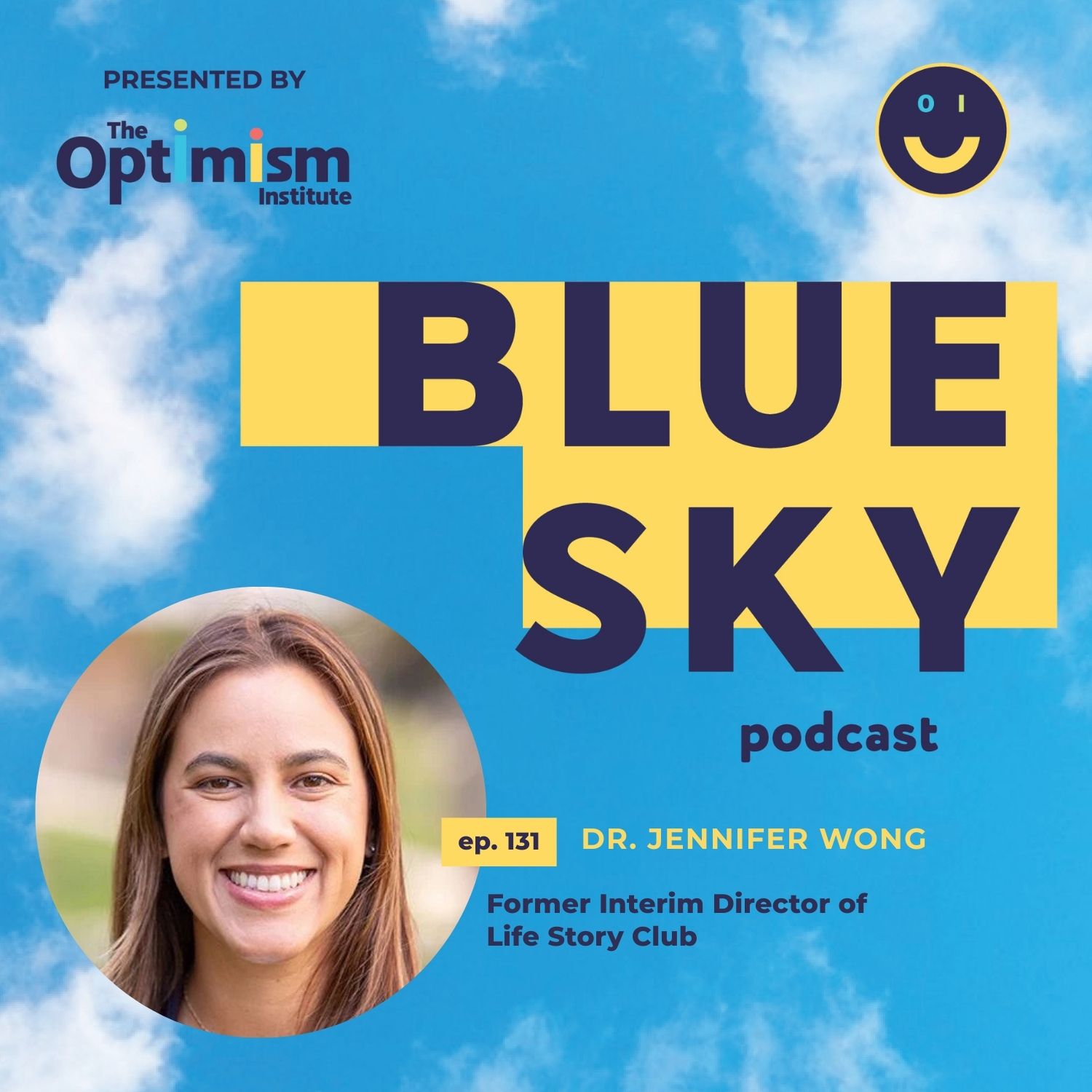
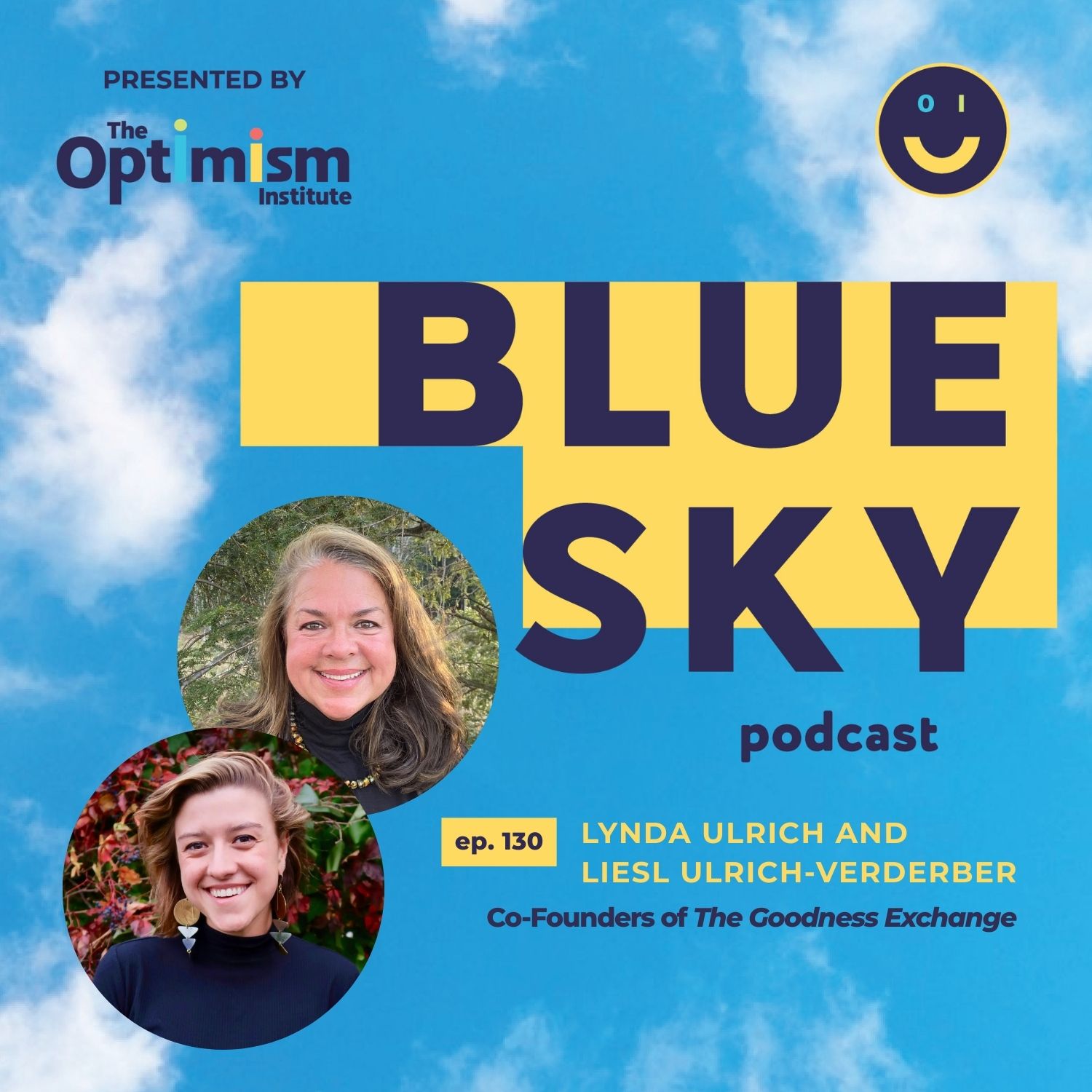



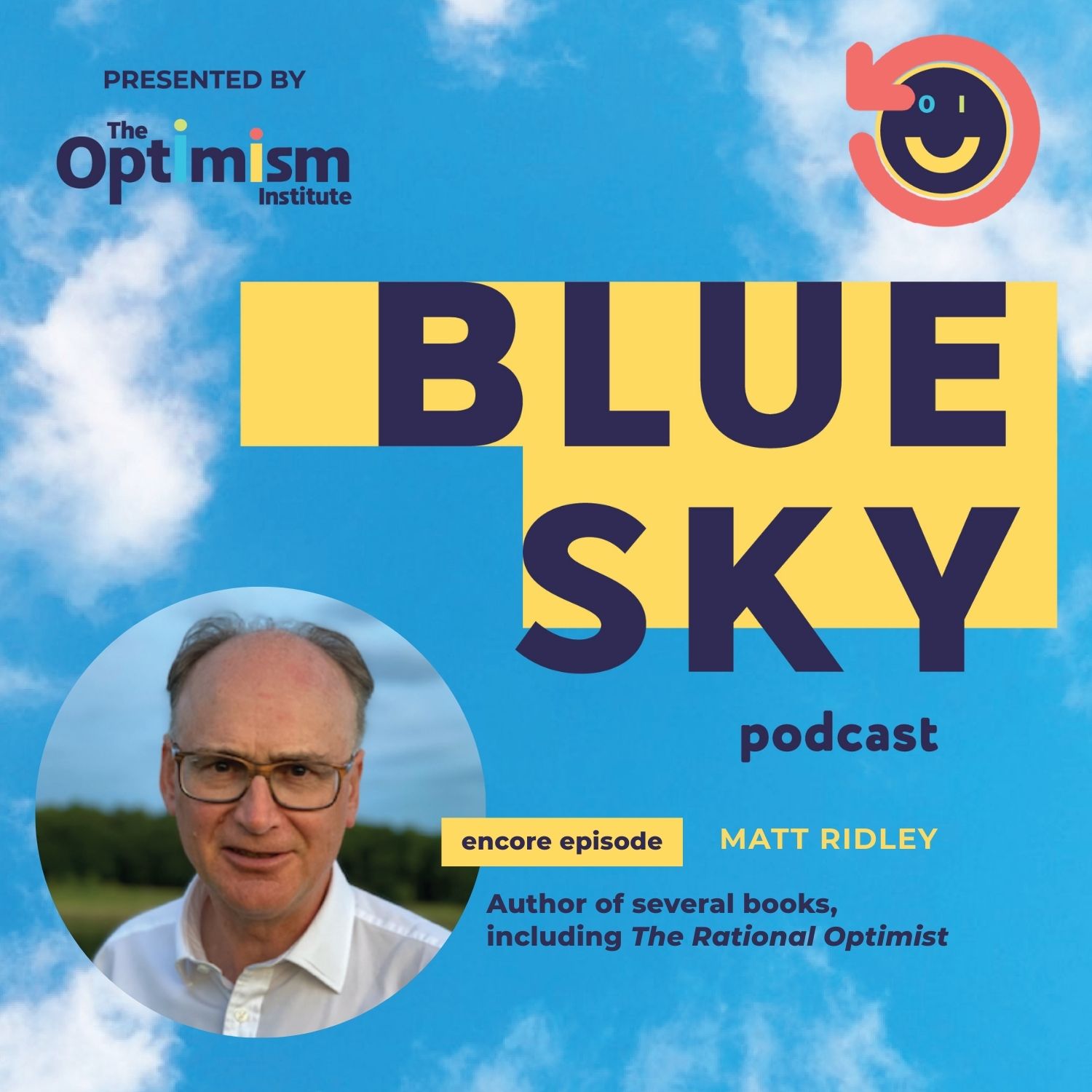
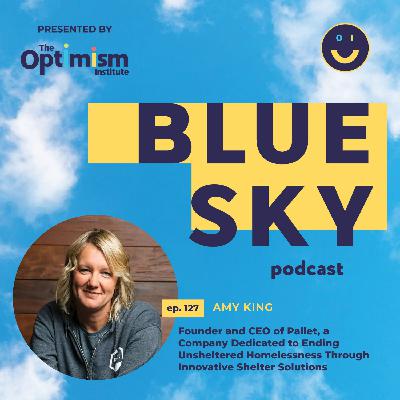
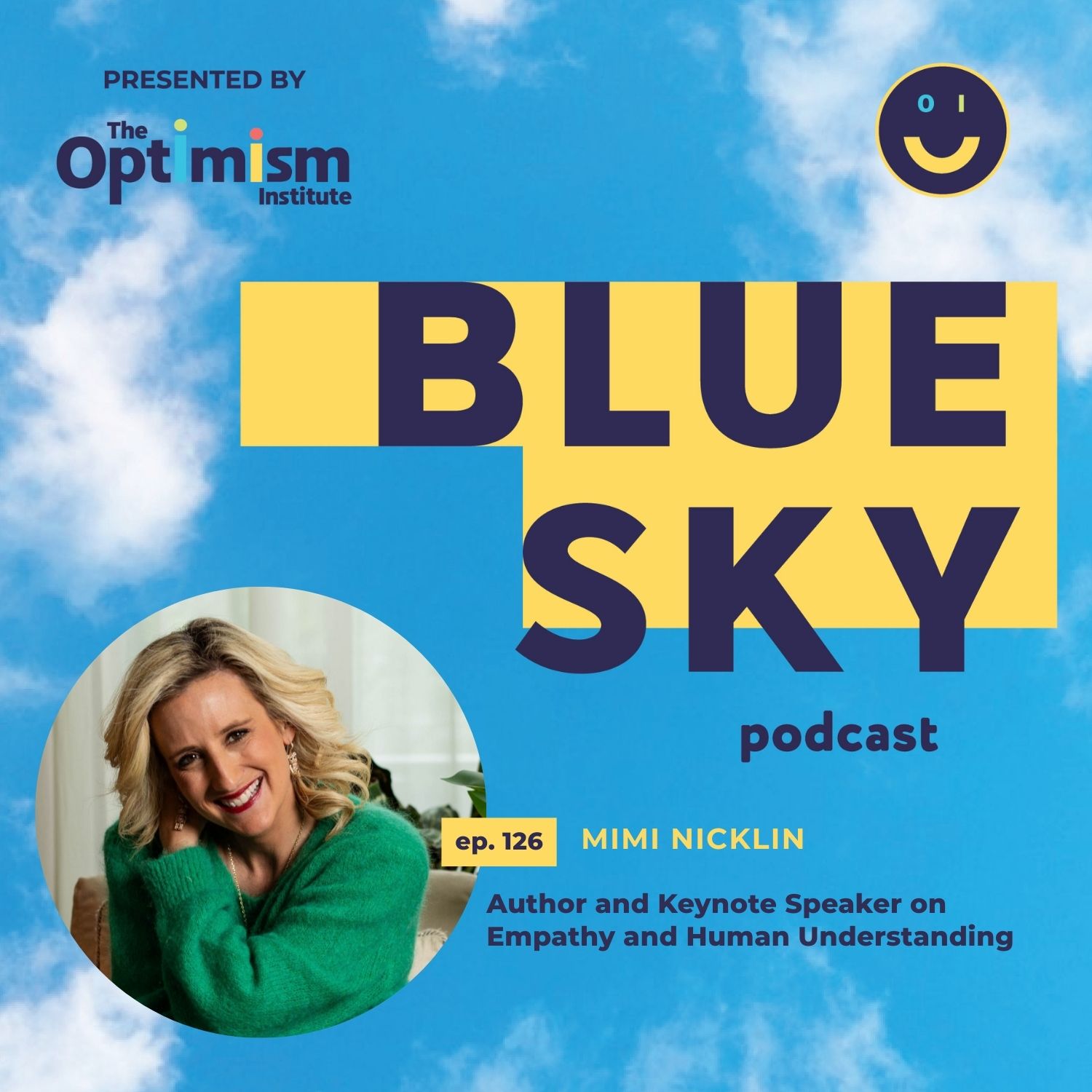

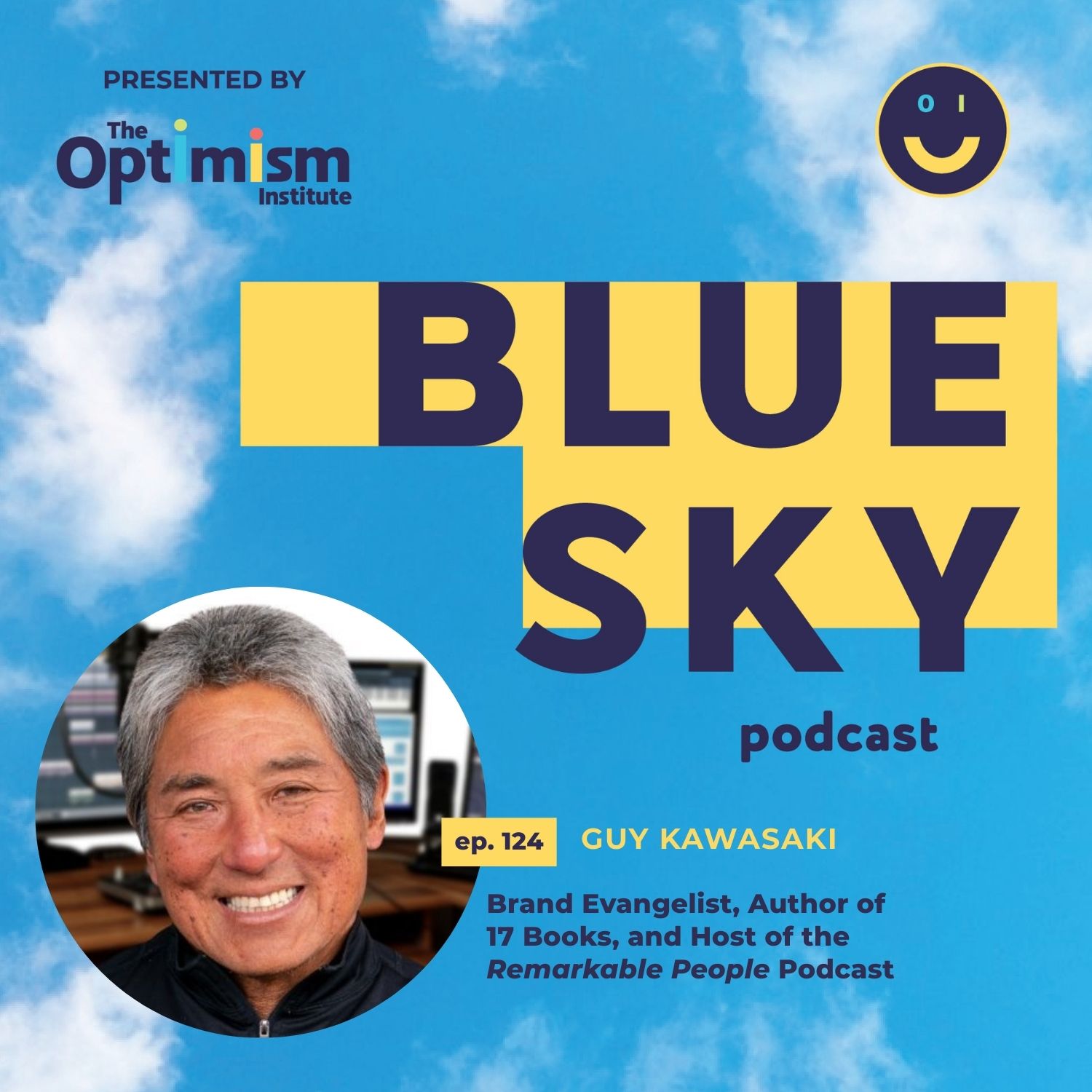
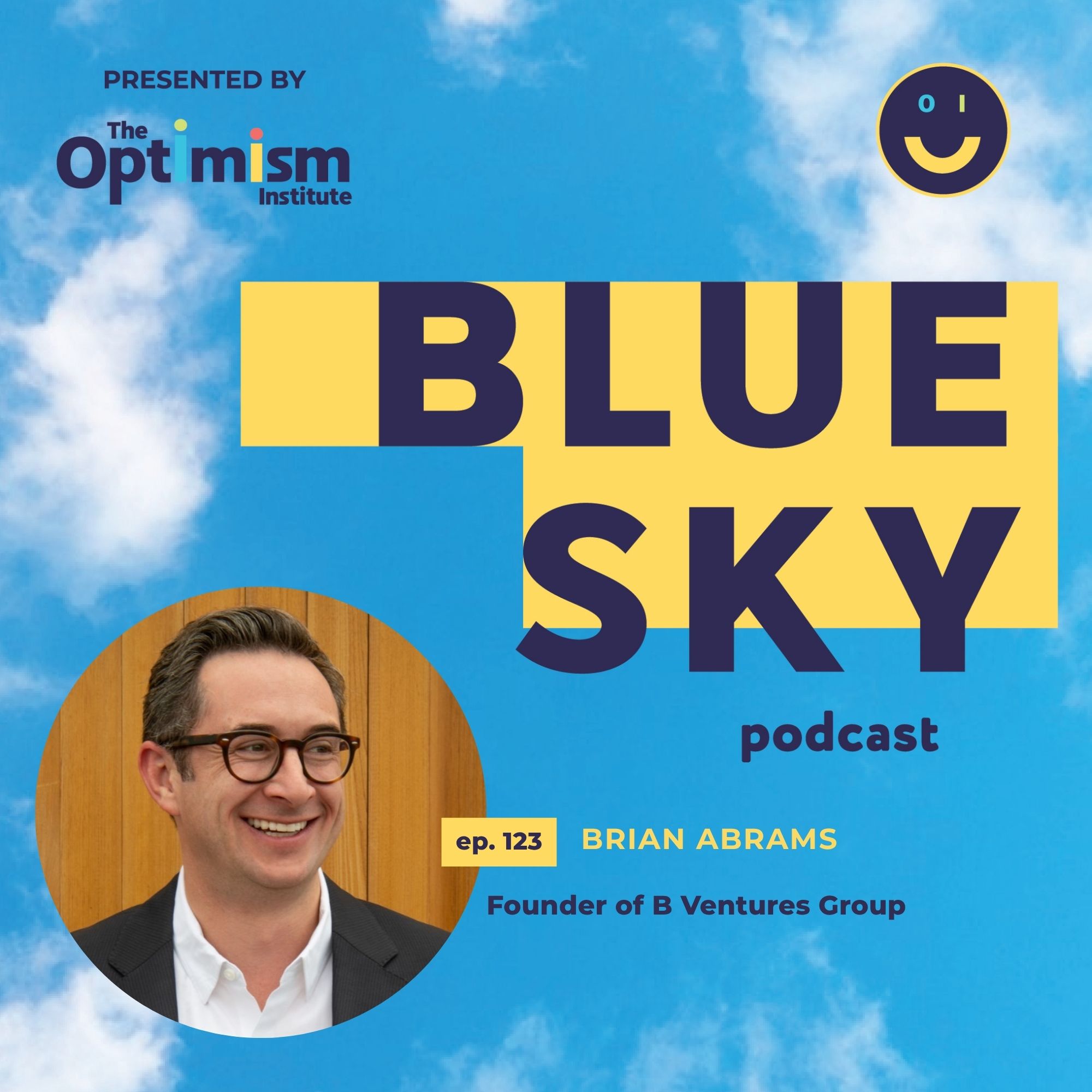
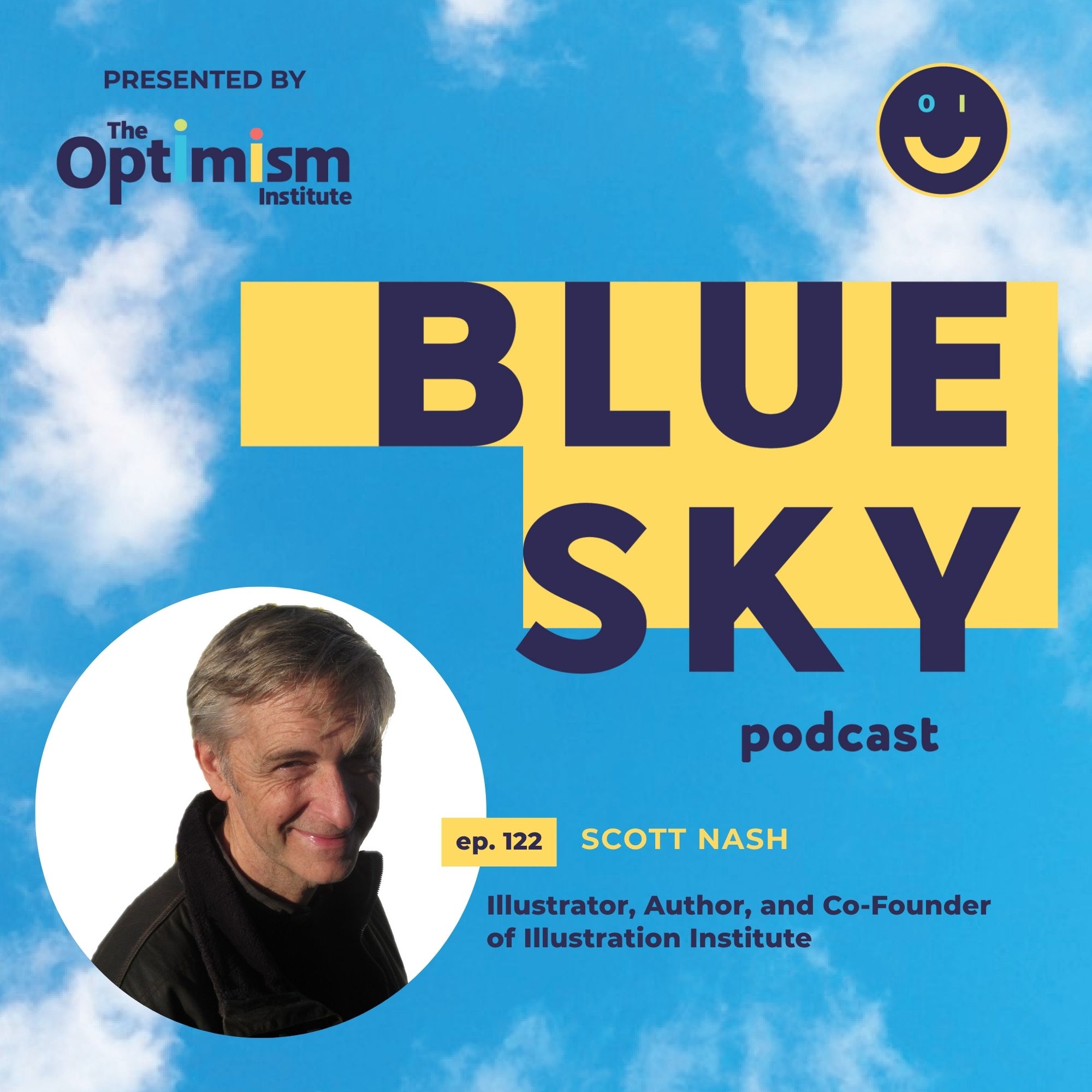
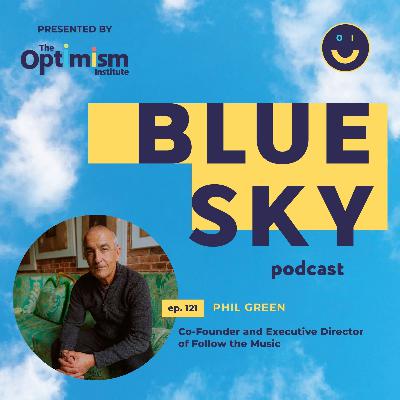

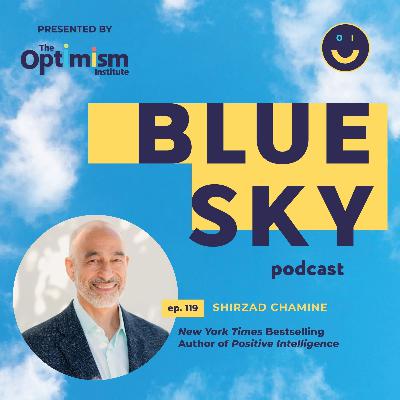


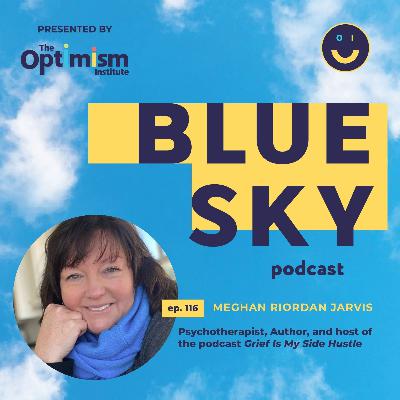
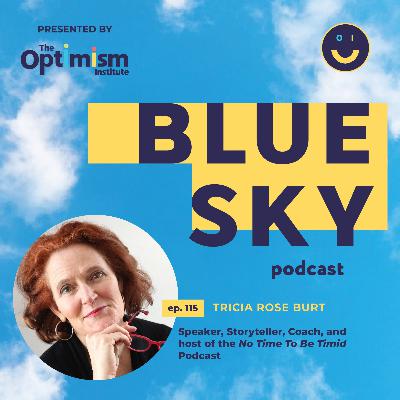
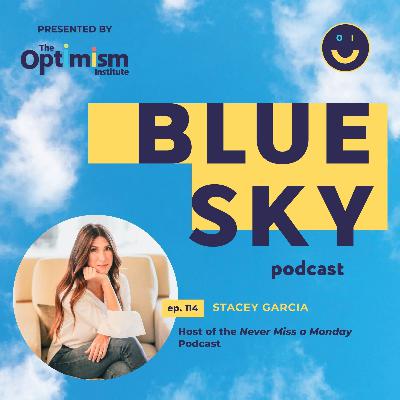



That sounds like a really inspiring podcast concept. Bringing together optimistic leaders and thinkers to tackle global challenges is something many people need right now. Just as Blue Sky helps listeners find clarity and positivity, platforms like Sportzfy give users an easy way to unwind and stay connected through streaming, offering a refreshing break from everyday stress. https://sportzfyfree.net
The original Block Blast provides smooth performance, daily challenges, and leaderboards where players can compete globally. With smart planning, practice, and strategic placement, you can achieve high scores without relying on risky modified files.https://blockbalstmod.com/
After playing the puzzle solver game, I can confidently say that it transforms the Block Blast experience into something much greater thrilling and fun. With limitless assets, velocity hacks, and custom topics, it’s the precise upgrade for all of us serious about the game. https://blockbllast.com/
I really enjoyed this episode and the positive perspective it brings—it’s refreshing to hear stories and insights that focus on what’s possible, even when challenges seem overwhelming. The idea that there’s always “blue sky” above is a powerful reminder to keep looking for hope and opportunity. By the way, I’m building Skyblaze, an all-in-one AI tool to help you get more followers on Bluesky. If anyone’s interested in growing their presence or connecting with more like-minded optimists, feel free to check it out: https://skyblaze.app/
I used to get stuck on levels, but with Block Blast Mod APK, I finally cleared them all. The extra features really help when the puzzles get tough. https://blockblastmodapks.pro/
With Stardew Valley Mod APK for PC, you can enjoy a bigger screen, smoother controls, and all modded features that take your farming journey to the next level. https://stardewsvalleyapk.com/
systematic withdrawal plan calculator is a financial tool. It is used to calculate the estimated amount of output of mutual fund investments over a specific period. You can specify these time periods as you wish. It should be kept in mind that withdrawals are made on a regular basis. These intervals can be monthly, annually, quarterly, or semiannual. An SWP Calculator not only tells you the regular withdrawal amount but also the remaining balance, tenure, and expected return on the investment. https://swpcalculators.com
The 8 Ball Pool Mod APK makes the game so much more enjoyable with unlimited coins and cash. It’s a game-changer for leveling up quickly. Visit: https://8ballpoolapk.pro
Today I will introduce you a finely developed WhatsApp mod called FM WhatsApp, which is designed exclusively for its cool features and horrible visual experience. Visit https://apkwa.org/es/fm-whatsapp/
CapCut is a powerful video editing tool that provides various effects, filters, and transitions. Its straightforward interface makes it easy to edit videos with text, music, and speed adjustments. https://capcutt.net/
Thank you for sharing such valuable information, it seems to be very useful at https://techybi.com/
"Enjoy toca boca to the fullest with our Toca Boca Mod APK download! Get unlimited access to every feature without any in-app purchases. Visit our website for the latest version and unlock all the fun!"
Get ready to elevate your music experience with blackhole apk Our site offers the latest version, so you can stream or download your favorite songs in high-quality audio without ads. Check out the Blackhole APK now and unlock a world of free, premium music streaming!"
C4Yourself is an online platform that allows individuals to apply for public assistance programs like CalFresh, CalWORKs, and Medi-Cal in California. It simplifies the application process by letting users submit their information, check eligibility, and manage benefits from any device. The platform also provides updates on case status and allows users to upload documents securely. C4Yourself makes accessing essential services easier, helping individuals and families receive the support they need. https://www.c4yourself.live/
On the other hand, the Snaptube Mod Apk offers full HD quality of each type of content and is also free.
Insta Pro is a modified version of Instagram that allows users to download photos & videos from Insta. Download Instagram Pro Latest Version 2024. https://instapro.dev/
Download Insta Pro APK Updated Version For Android. Instagram Pro Developed by Sam Provides Extra Features like Hide Stories, App Lock & Font Styles. https://instapro.net.co/
Download SnapTube Mod APK for Android Mobile. Watch and Download HD Videos and Music from Popular Platforms like YT, Facebook, Instagram and Many More. https://snaptubedl.net/
SnapTube APK is Best Online Video Downloader App With New Exciting Features! SnapTube Helps You to Download Videos and Music Mp3. https://snaptubes.com.co/
Download TikTok Mp4 videos quickly without watermarks also MP3 music for free. https://ssstikdownload.id/